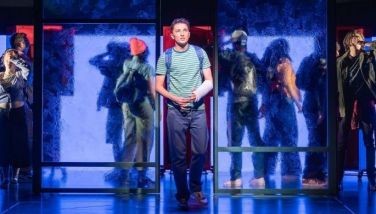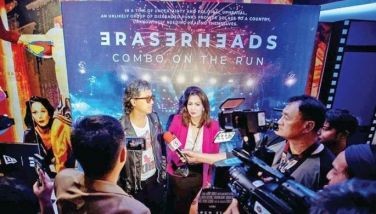Terrorist attack in 1972 Munich Olympics
February 10, 2006 | 12:00am
In September 1972, an unprecedented terrorist attack unfolded live before 900 million viewers across the globe and ushered a new world of unpredictable violence.
It was the second week of the Summer Olympics, and in Munich, West Germany, the games that had been dubbed "The Olympics of Peace and Joy" were off to a rousing start with swimmer Mark Spitz and gymnast Olga Korbut wowing the crowds. Suddenly, without warning, an extremist Palestinian group known as Black September invaded the Olympic Village, killing two members of the Israeli Olympic team and capturing nine as hostages. The tense stand-off and tragic massacre that ensued played out with stunning immediacy on TV before an international populace and ended 21 hours later when anchorman Jim Mckay spoke the haunting words, "They’re all gone."
While the Munich terror was seen and felt around the world, the intensely secret aftermath of the event has remained largely unknown. From director Steven Spielberg comes Munich, a gripping thriller based on the events of Munich 1972 and the highly charged mission of retribution that followed – by the covert hit squad known to Israeli intelligence as "Operation Wrath of God," one of the boldest and most aggressive assassination plots in modern history. In taut, vivid and human detail, the film takes audiences into a hidden moment in history that resonates with many of the same emotions in our lives today.
At the center of the story is the young Israeli patriot and intelligence officer Avner (Eric Bana). Still mourning the Munich massacre and infuriated by its savagery, Avner is approached by a Mossad officer named Ephraim (Geoffrey Rush) who presents him with an unprecedented mission in Israeli history. He asks Avner to leave behind his pregnant wife, relinquish his identity and go completely underground on a mission to hunt down and kill the 11 men accused by Israeli intelligence of masterminding the murders at Munich.
Despite his youth and inexperience, Avner soon becomes the leader of a team of four very diverse yet highly-skilled recruits: the brash, tough , South African-getaway driver, Steve (Daniel Craig); the German Jew Hans (Hanns Zischler), who has a flair for forging documents; the Belgian toymaker-turned-explosives expert, Robert (Mathieu Kassovitz); and the quiet, methodical Carl (Ciaran Hinds), whose job is to "clean up" after the others.
From Geneva to Frankfurt, Rome, Paris, Cyprus, London and Beirut, Avner and his team circle the globe under a cloak of extreme secrecy, tracking down each man on a closely guarded list of targets and carrying out intricately plotted assassinations, one by one. Working outside the rubric of international law, adrift without home or family, their only connection to humanity becomes one another. But even that starts to fray as the four men begin to argue among themselves about the unsetting questions that just won’t go away: "Who exactly are we killing? Can it be justified? Will it stop the terror?"
Torn between their desire for justice and their own growing doubts, the mission begins to tear at the souls of Avner and his team, and it becomes increasingly clear that the longer they remain on the hunt, the more they are in danger of becoming the hunted.
Munich is directed by Spielberg from a screenplay by Pulitzer Prize and Tony Award winner Tony Kushner (Angels in America), who makes his feature film debut as a screenwriter, and Eric Roth (Forrest Gump, The Insider), based on the book Vengeance by George Jonas. The producers are Kathleen Kennedy, Steven Spielberg, Barry Mendel and Colin Wilson. The cast includes Eric Bana (Black Hawk Down), Daniel Craig (Layer Cake), Geoffrey Rush (Shine), Mathieu Kassovitz (Birthday Girl), Hanns Zischler (Walk on Water) and Ciaran Hinds (The Phantom of the Opera).
Working with Spielberg to create a probing atmosphere of suspense in Munich is an accomplish team of long-time collaborators, including two-time Academy award-winning cinematographer Janusz Kaminski, three-time Academy award-winning editor Michael Kahn, Oscar nominated production designer Rick Carter, costume designer Joanna Johnston and five-time Academy Award winning composer John Williams, who has composed a spare, minimalist score to highlight the human drama of the events. – Zar Baisas
It was the second week of the Summer Olympics, and in Munich, West Germany, the games that had been dubbed "The Olympics of Peace and Joy" were off to a rousing start with swimmer Mark Spitz and gymnast Olga Korbut wowing the crowds. Suddenly, without warning, an extremist Palestinian group known as Black September invaded the Olympic Village, killing two members of the Israeli Olympic team and capturing nine as hostages. The tense stand-off and tragic massacre that ensued played out with stunning immediacy on TV before an international populace and ended 21 hours later when anchorman Jim Mckay spoke the haunting words, "They’re all gone."
While the Munich terror was seen and felt around the world, the intensely secret aftermath of the event has remained largely unknown. From director Steven Spielberg comes Munich, a gripping thriller based on the events of Munich 1972 and the highly charged mission of retribution that followed – by the covert hit squad known to Israeli intelligence as "Operation Wrath of God," one of the boldest and most aggressive assassination plots in modern history. In taut, vivid and human detail, the film takes audiences into a hidden moment in history that resonates with many of the same emotions in our lives today.
At the center of the story is the young Israeli patriot and intelligence officer Avner (Eric Bana). Still mourning the Munich massacre and infuriated by its savagery, Avner is approached by a Mossad officer named Ephraim (Geoffrey Rush) who presents him with an unprecedented mission in Israeli history. He asks Avner to leave behind his pregnant wife, relinquish his identity and go completely underground on a mission to hunt down and kill the 11 men accused by Israeli intelligence of masterminding the murders at Munich.
Despite his youth and inexperience, Avner soon becomes the leader of a team of four very diverse yet highly-skilled recruits: the brash, tough , South African-getaway driver, Steve (Daniel Craig); the German Jew Hans (Hanns Zischler), who has a flair for forging documents; the Belgian toymaker-turned-explosives expert, Robert (Mathieu Kassovitz); and the quiet, methodical Carl (Ciaran Hinds), whose job is to "clean up" after the others.
From Geneva to Frankfurt, Rome, Paris, Cyprus, London and Beirut, Avner and his team circle the globe under a cloak of extreme secrecy, tracking down each man on a closely guarded list of targets and carrying out intricately plotted assassinations, one by one. Working outside the rubric of international law, adrift without home or family, their only connection to humanity becomes one another. But even that starts to fray as the four men begin to argue among themselves about the unsetting questions that just won’t go away: "Who exactly are we killing? Can it be justified? Will it stop the terror?"
Torn between their desire for justice and their own growing doubts, the mission begins to tear at the souls of Avner and his team, and it becomes increasingly clear that the longer they remain on the hunt, the more they are in danger of becoming the hunted.
Munich is directed by Spielberg from a screenplay by Pulitzer Prize and Tony Award winner Tony Kushner (Angels in America), who makes his feature film debut as a screenwriter, and Eric Roth (Forrest Gump, The Insider), based on the book Vengeance by George Jonas. The producers are Kathleen Kennedy, Steven Spielberg, Barry Mendel and Colin Wilson. The cast includes Eric Bana (Black Hawk Down), Daniel Craig (Layer Cake), Geoffrey Rush (Shine), Mathieu Kassovitz (Birthday Girl), Hanns Zischler (Walk on Water) and Ciaran Hinds (The Phantom of the Opera).
Working with Spielberg to create a probing atmosphere of suspense in Munich is an accomplish team of long-time collaborators, including two-time Academy award-winning cinematographer Janusz Kaminski, three-time Academy award-winning editor Michael Kahn, Oscar nominated production designer Rick Carter, costume designer Joanna Johnston and five-time Academy Award winning composer John Williams, who has composed a spare, minimalist score to highlight the human drama of the events. – Zar Baisas
BrandSpace Articles
<
>
- Latest
- Trending
Trending
Latest
Trending
Latest
Recommended
March 26, 2025 - 12:00am































